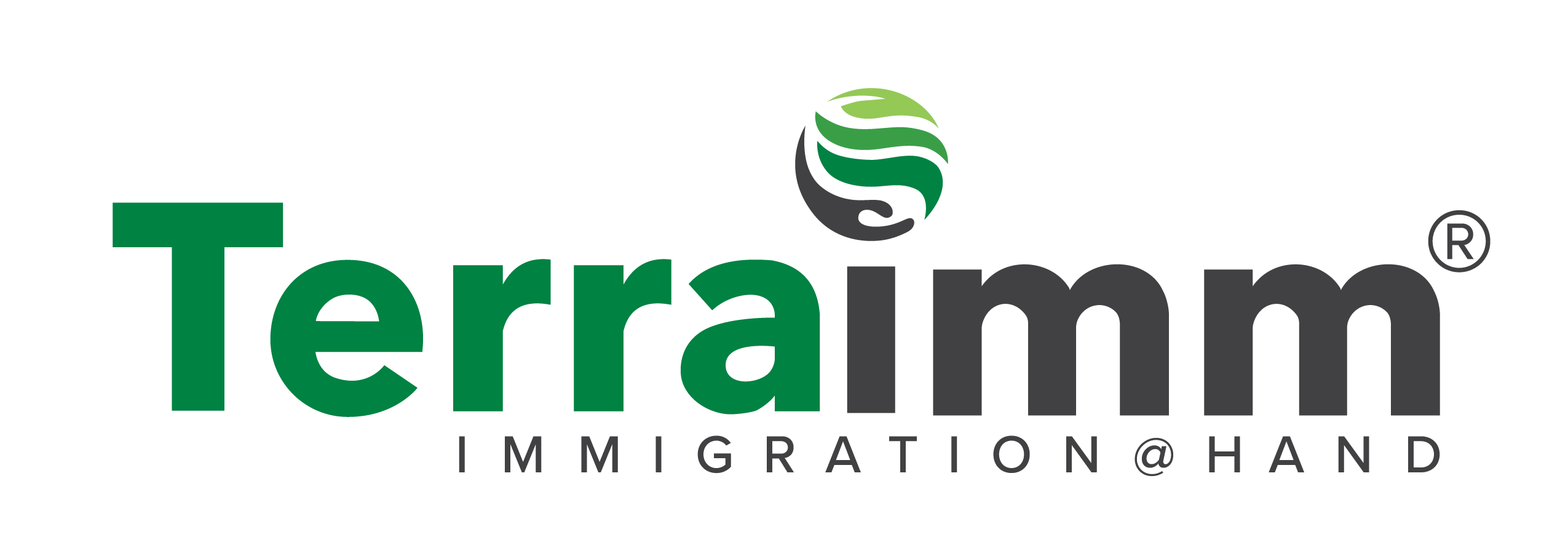Para obtener más información:
USCIS Updates Guidance on National Interest Waivers | USCIS
Descripción general:
- Introduction to the National Interest Wavier
- Benefits of a National Interest Waiver
- National Interest Waiver requirements
- Required documents to apply for a National Interest Waiver
- National Interest Waiver process
- National Interest Waiver fees
- National Interest Waiver processing time
- Conclusion
1. Introduction to the National Interest Waiver
Obtaining an employer-sponsored green card to the United States is typically a long and tough procedure. In most circumstances, the U.S. corporation must demonstrate that it attempted to recruit a U.S. worker but was unable to do so. To recruit a foreign worker, the firm must run advertising, interview people, and then obtain clearance from the U.S. Department of Labor. This procedure may become extremely complicated, time-consuming, and costly. As a result, many firms are hesitant to sponsor foreign workers for green cards.
The good news is that you may apply for a green card self-petition in some cases. This implies you can apply for a green card without having a work offer from a U.S. firm or having a corporation act as your sponsor.
The National Interest Waiver is one of these alternatives (NIW). The National Interest Waiver is offered to EB-2 immigrants. Certain people with skills and competencies in science, art, commerce, and/or certain other professions may self-petition for a green card under the national interest waiver.
The National Interest Waiver waives the requirement that you have a full-time employment offer and that a U.S. company sponsors you.
2. Benefits of a National Interest Waiver
There are several benefits to seeking a National Interest Waiver:
Ability to self-petition
One of the key advantages of the EB-2 national interest waiver, as previously stated, is the opportunity to self-petition for your green card. You do not have to go through the effort of locating a U.S. employer ready to sponsor your immigration petition if you use the national interest waiver. Another advantage of the national interest waiver is that it allows you to skip the labor certification procedure entirely.
Speed
Another significant advantage of the national interest waiver is its quickness. The procedure for obtaining a standard employer-sponsored green card can be lengthy. The company must engage in different recruitment operations and receive a department or Labor-approved labor certification. This procedure alone can take months to complete. The EB-2 national interest waiver, on the other hand, eliminates the requirement to go through a labor certification process. You may simply file your immigration petition, which saves you a lot of time.
3. National Interest Waiver requirements
There are 4 main requirements to qualify for EB-2 NIW:
- You must be eligible for the EB-2 immigration category.
- Your prospective venture in the United States must be of high merit and national significance.
- You must be well-positioned to move the planned project forward.
- You must demonstrate that, on balance, it would benefit the U.S. to waive the requirement that you have a work offer and that a U.S. employer goes through the labor certification procedure.
Qualify under the EB-2 immigrant category
The EB-2 national interest waiver is a unique provision accessible solely to EB-2 immigrants. Essentially, the NIW is an additional set of requirements in addition to the EB-2 standards. As a result, to qualify for a national interest waiver you must first meet the requirements of EB-2. There are two basic ways to qualify for the EB-2 category. You may be eligible for EB-2 as an advanced degree professional or individual extraordinary talent.
Advanced Degree Professional – to qualify you must show the following:
- The field in which you intend to work must necessitate a graduate degree.
- You must have an advanced degree (any degree higher than a bachelor’s) OR a baccalaureate degree plus 5 years of progressive professional experience in the field you intend to work in.
Exceptional Ability – you must satisfy at least 3 of the following:
- 10 years of full-time experience in your field
- Degree in your field
- License to practice in your profession
- Membership in professional associations
- Salary/Remuneration that demonstrates exceptional ability
- Recognition for your accomplishments and substantial contributions to your field by peers, government, agencies, or professional business associations.
Proposed Endeavor in the U.S. must have substantial merit and national importance
To be eligible for a national interest waiver, you show that your planned project has both considerable value and national significance. It is critical to explicitly demonstrate that both prongs are met.
Substantial merit
- Substantial merit indicates that the work you will be doing while in the United States is important to the national interest of the United States.
- The considerable merit proof should be focused on the precise activity that you will be focusing on. For example, if you are a pediatric orthopedic surgery specialist, you should characterize your work as pediatric orthopedic surgery rather than “medicine” or “surgery”.
- You may excel in a variety of fields, including science, technology, entrepreneurship, culture, health, business, and education.
National Importance
USCIS examines the probable future effect when deciding whether your undertaking is of national interest. The following proof is requested by USCIS:
- Is your project having national or perhaps global ramifications in your field?
- Is your venture likely to employ U.S. employees, or does it have other major beneficial economic consequences?
Regarding national importance, it is crucial to note that the USCIS is not so concerned with the geographic impact of your activity; even those who will work in an area with local or regional influence may qualify for E-B2 NIW.
You must be well-positioned to advance the proposed endeavor
You must demonstrate that you are well-positioned to pursue your intended undertaking to qualify for a national interest waiver. USCIS considers your capacity to contribute to the national interest based on your projected employment in the field when deciding whether you meet this condition.
Here are some factors USCIS uses to determine whether you satisfy this requirement:
- Education
- Skills
- Knowledge
- Record of success in related or similar effects
- Model or plan for future activities
- Any developments toward completing your desired project
- Interest from potential consumers, users, investors, or other relevant entities or persons
To satisfy this requirement, you are not required to show that it is more likely than not that you will be successful. You must show how you are qualified to pursue a successful result.
You must demonstrate that it would benefit the United States to waive the requirements for a job offer and as a result, a labor certification
When determining whether or not you satisfy this requirement, USCIS weighs the following:
- Whether it would be impossible for you to obtain a job offer
- Is it practical for your prospective employer to get a labor certification?
- Whether, even if other qualified U.S. employees are available, your contributions would still help the U.S.
- Whether the national interest in your contributions is compelling enough to forego the labor certification process.
4. Required documents to apply for a National Interest Waiver
Documents of various categories should be included in your application for a national waiver interest. The papers you provide will be determined by the facts of your case. It is critical to speak with an expert immigration lawyer before making any judgments about what papers to submit with your petition.
This is a general list of some of the documents that may be included:
- Copies of your educational degrees
- Evidence of exceptional ability (if applicable)
- Curriculum Vitae (CV)
- Citation Report
- Link to the Google Scholar profile
- Publications, articles, and books that you have authored
- Evidence of prizes or awards that you have received
- Evidence that you have received the work of others
- Published material about/your field of endeavor
- Evidence of the receipt of grants/patents
- Copy of the biographic page of your passport
- Testimonials from experts in your field
5. National Interest Waiver Process
National Interest Waiver Process
Step 1 – Consult with an immigration lawyer
Consultation with a professional immigration lawyer is the initial stage in the NIW procedure. It is important to seek the advice of an immigration attorney for the following reasons:
- An expected immigration lawyer may analyze your credentials and offer you an appraisal of your case’s chance of acceptance.
- An immigration lawyer can go into your past and immigration history to see if there is a better way for you to receive your green card.
- Applying for a national interest waiver can be a difficult process. Each NIW case necessitates a specific approach to demonstrating that you will meet all of the NIW standards. An expert immigration lawyer will assist you in developing a plan for effectively submitting your EB-2 national interest waiver application.
Step 2 – File Form I-140 with USCIS
Form I-140 must be the first form submitted to USCIS to apply for a green card under EB-2 NIW. Your immigration lawyer will produce a detailed cover letter describing your situation and your eligibility for a national interest waiver in addition to Form I-140. Furthermore, any paperwork supporting your eligibility for a national interest waiver will be supplied with Form I-140.
Step 3 – Either adjustment of status or visa processing
Once your Form I-140 has been accepted and you have a visa number, you will need to either adjust your status or apply for an immigrant visa. Each of these alternatives is distinct.
Adjustment of Status
- When someone “adjusts” from non-immigrant to lawful permanent resident status, this is referred to as an adjustment of status.
- To modify your status, you must be lawfully present in the United States with a valid non-immigrant status.
- Form I-485 is used to file an adjustment of status with USCIS.
- The adjustment of the status procedure is carried out within the United States (no need to leave the U.S.)
- If the priority date is current at the time you file Form I-140 you may also file Form I-485 adjustment of status.
Immigrant visa Processing
- When someone applies for an immigrant visa in a consulate or embassy outside of the United States, this is known as immigrant visa processing.
- Immigrant visas are normally processed when a person is not lawfully present in the United States in a legitimate non-immigrant status.
- Immigrant visas are processed by electronically submitting a DS-260 to the Department of State.
- You must attend a visa interview at a consulate overseas as part of the immigrant visa filing procedure.
- You should obtain your immigrant visa within a few days of completing the interview.
- When you enter the United States on an immigrant visa, you become a lawful permanent resident of the United States.
6. National Interest Waiver Fees
Here are the USCIS filing fees for each step of the EB-2 NIW process:
- Filing fee for Form I-140: $700
- Filing fee for Form I-485 (Adjustment of Status): $1,225
- Premium Processing Fee: Optional $1,410
7. National Interest Waiver processing time
The entire processing time for receiving your green card through EB-2 NIW will be determined by several variables.
Concurrent Filing of Form I-140 and Form I-485
If you are lawfully present in the United States in a valid non-immigrant status and a visa number is available, you may be allowed to file Form I-140 and Form I-485 concurrently. You should receive your employment authorization (EAD) and travel authorization (advanced parole) within 6 months in this case. You should get your green card within 8-9 months.
Immigrant visa processing with a current priority date
If you are not lawfully present in the United States and want to apply for an immigrant visa, you must first file the I-140 with USCIS. Once the I-140 is granted, you can begin the immigrant visa application procedure. The I-140 application process takes roughly 7-8 months. If the I-140 is accepted and a visa number is available (currently priority date), you can then begin the immigrant visa procedure, which takes another 7-9 months. As a result, the overall processing time would be between 14 and 17 months.
Priority date note current (visa backlog)
Visas under the EB-2 category are in great demand from nations such as India and China because demand exceeds the number of available visas. This indicates that there is a waiting list for those seeking a visa under the EB-2 category in some nations. If you were born in a country with a visa backlog, you will have to wait for a visa number to be available before applying for your immigrant visa and adjustment of status. If this is the case for you, the total time it takes to obtain your green card might be many years.
8. Conclusion
The EB-2 National Interest Waiver is an excellent way for you to obtain lawful permanent residence (a green card) in the United States without having to provide a job offer. You can self-petition for your green card and also apply for your spouse and unmarried children under the age of 21 under the EB-2 National Interest Waiver.
The EB-2 NIW has a high standard that must be met for your case to be approved. As a result, it is critical that you work with an experienced lawyer to prepare and file your application.









